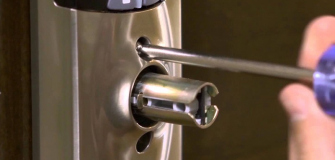Understanding the Basics of Water Heaters: A Comprehensive Guide
Share

Water heaters are essential to any home, providing hot water for cooking, cleaning, and bathing. While most people take their water heaters for granted, much background information goes into understanding how these appliances work. This comprehensive guide will provide everything you need to know about water heaters, from how they operate to the different types available on the market. Whether you’re shopping for a new water heater or want to brush up on your knowledge, this blog post has you covered. So pour yourself a cup of coffee and settle in – it’s time to learn about water heaters!
What is a water heater, and how does it work?
Have you ever wondered how hot water always seems available at the turn of a faucet? The secret is your home’s water heater. Through an efficient process of heating and storing, these innovative pieces of technology heat and provide water wherever it’s needed in the house. Water is heated using electricity, gas, or a combination of both. The hot water is then stored in a tank and released as needed to prevent energy loss during idle times. Through this process, you and your family can enjoy hot showers, dishwashing, and laundry without interruption! Understanding how your water heater works can help you make the most out of its future performance, so do your research before making any decisions about replacement or maintenance.
The different types of water heaters available on the market today
Knowing which type of water heater is right for you can take time, especially with the wide variety available today. From tankless to solar and electric systems, understanding the function and cost of each option is critical. Additionally, considering the size and output needed for your property is essential – purchasing a water heater that offers adequate volume for your specific needs is best. Tankless heaters are often favored due to their space-saving design, but power sources and climate should also be considered when making this decision. With plenty of options, there’s sure to be a solution suited for every situation!
How to choose the right size water heater for your home
Choosing the right size water heater for your home is an important decision. Before selecting a new water heater, you should be able to assess the products that are best for your specific needs. Family size, hot water usage, and tank size should all be considered when selecting. Reviewing can also help you determine if a particular model is a suitable choice for you. Remember that it’s always better to overestimate the size of a water heater than underestimate it: purchasing an undersized unit may result in insufficient hot water throughout your house during peak times. Refer to our comprehensive guide on understanding the basics of water heaters to ensure you find the perfect fit for your family!
Tips for maintaining your water heater to extend its lifespan
Properly taking care of your water heater will not only keep hot showers and baths uninterrupted, but it will also extend the life of your appliance. Several habits must be practiced to ensure that your water heater lasts as long as possible. Flush and drain the tank every six months; this removes any sediment accumulated in the tank, improving efficiency and preventing premature damage. Once a year, inspect all fittings and connections for signs of corrosion or leakage to ensure the system is running optimally. Also, could you keep an eye on the temperature settings? You want it no higher than 120 degrees Fahrenheit to avoid scalding and minimize energy use. Following these maintenance tips for a water heater goes a long way toward improving its lifespan.
A straightforward way to maintain your heater is by regularly hiring a professional like Mr. Waterheater to inspect and maintain your water heater. Not only can this help detect any existing issues before they become problems, but identifying minor, inexpensive repairs now can keep your system running efficiently for years to come and save you money. With an experienced professional with the right tools, knowledge, and materials, you’ll have the peace of mind of knowing your home is in the best condition possible.
FAQs about water heaters
Regarding plumbing, few things are as essential as a water heater. Whether you’re taking a hot shower or washing dishes, having access to hot water is a must. But with all the different models of water heaters available today, it can be hard to know which one is right for your home. Here are some common questions regarding water heaters and their answers to help you make an informed decision.
What Types of Water Heaters Are Available?
Three main types of water heaters are currently available on the market: electric, propane, and natural gas. Each type has its edges and disadvantages, so research is essential before deciding which one is best for your home. Generally speaking, electric water heaters tend to be more efficient than their gas-powered counterparts but require significantly more electricity to operate. Propane and natural gas models take up less space and can be installed nearly anywhere in the house but may require professional installation due to their complexity.
How Much Does a Water Heater Cost?
The cost of a new water heater can vary widely depending on the size, type, brand, and features included with the unit. Generally speaking, electric models tend to be cheaper than their gas-powered counterparts, while larger units typically cost more than smaller ones. On average, you can expect to pay around $500-$1000 for a mid-range model with essential features such as temperature control and energy efficiency ratings. If you’re looking for something higher-end or want additional features such as remote operation or Wi-Fi integration, you should expect to pay upwards of $2000 or even more in some cases.
Are There Any Benefits To Installing A New Water Heater?
Yes! Not only will installing a new water heater save you money in the long run, thanks to improved energy efficiency ratings, but it can also help reduce your carbon footprint since newer models use fewer resources when compared to older models. Additionally, modern models come equipped with advanced safety features such as overheat protection that can help prevent accidents caused by excessive temperatures or faulty wiring connections. Finally, installing a new model will ensure that you have access to hot water whenever you need it without worrying about an old unit suddenly failing during peak usage times, such as when family members return home from work or school at night.
Now that you know the basics of water heaters, you can decide which type and size are suitable for your home. Be sure to follow the manufacturer’s maintenance recommendations to extend the lifespan of your water heater. And if you have any questions, don’t hesitate to ask one of our experts at ABC Plumbing. We’re always happy to help!









